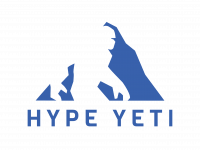To truly begin to get your websites and blog sites found organically on the Internet, you should have basically a pattern understanding of spiders and website page indexing.
The principal thing to know is that, if the search engine has not indexed internally and put away data about your site page or other web-based content, searchers using that search engine like google simply won’t track down you.
How Do You Get Indexed Across Search Engines?
Well, there are a few ways that this occurs. First, you can manually access search engines and ask them to index your pages – before they do this, a point to keep in mind is that you will probably also need to submit to them your sitemap.xml file as well.
Crawling, Indexing And Ranking
Next is where spiders, also known as crawlers, come into the picture. Google has a famous “crawler” called Googlebot whose job it is to go out and crawl websites around the Internet to get information about them for storage in their search engine database – the “Indexing” process referred to above.
When you go into the Google Webmaster Tool and submit your sitemap.xml file and then ask Google to check out your webpages and index them for their search engine database – and you use the “Fetch as Google” tool to do this – it is the “Googlebot Crawler” that gets the order to go out and get these jobs done.

As the largest search engine on the Internet, the Googlebot crawler is kept extremely busy so don’t expect this job to get done immediately- it often can take around 2-4 weeks before Googlebot gets around to actually processing your submission and crawl requests.
By the way, it is not just your webpage titles, keyword tags, and meta-descriptions that get indexed when your website gets crawled.
Your content on the page gets crawled and stored and listed within the search engine as well. This means that a top-down scan of your webpage text – or some of your webpage text is done, Image titles and alternate titles, anchor text and hyperlinks, etc. are also listed and stored to determine the “Authority and Content Value” of the webpage crawled.
Depending on what the crawler finds on your page goes a long way to determining how your page will rank within the search engine itself when a searcher is looking to obtain information.
Important Tips To Keep In Mind Before Publishing Any Posts
- First, make sure you have a few relevant keyword phrases near the top of your article, blog post, or page text that align with your page title, meta tags, and meta description.
- Second, it is a good idea to “Bold” these keyword phrases in your text on your page – this makes it easier for the crawlers to spot it as they pay extra attention to title lines within a page when crawling. Bolding this text will help show its importance and relevance to the page and your meta tag descriptions.
- Third, use Anchor Text and hyperlinks as well – preferably within the first couple of paragraphs of your content as you just never know how deep down the page the spider search will go – so help it out in its job as much as you can. Do your best to get it to like your page.
You can find many websites on google competing with each other for the same keyword. If you want to stand out, you have a much better chance of being found organically if your web pages are professionally constructed.
you could never get any decent amount of traffic to come to the sites organically if your websites aren’t optimized properly with necessary elements. To crawl and index properly, your websites must formulate with every on-page requirement. It tends to bring excellent results organically for the users.
Robots.Txt
By the way, remember to ask search engines to recrawl web pages once your rework is done – otherwise, they might still sit there without activity for months and even years into the future.
In summary, remember to do the things that keep search engine spiders happy. As you grow, be sure to put a robots.txt file on your site to:
- Give additional instructions to the spiders crawling your online locations;
- Clean up all hard and soft error 404’s for missing webpages and links;
- Minimize or eliminate javascript comments
- Keep your sitemaps up to date.
- Whenever you make significant changes to a page, look for webpage “meta-tag” duplications across 2 or more pages and fix them.
- Check to ensure your page loading speeds remain within acceptable parameters;
- Check your web server activity logs from time to time to see if spiders are actively crawling you; and,
- If you are technical enough or your webmaster is, run your own spiders against your own sites to see if they are working properly and are not “blocking” spiders unnecessarily so they have to quit
Recommended Reading:- Changing Landscapes of Digital Marketing In Nepal

